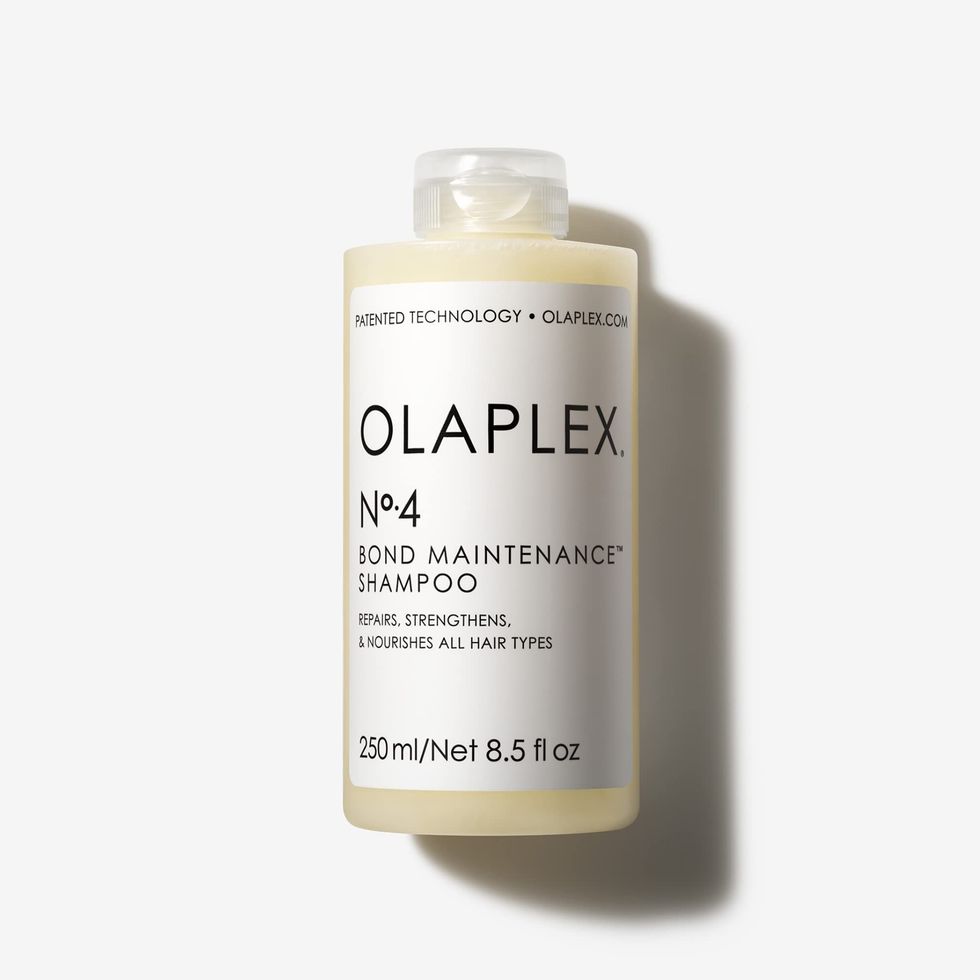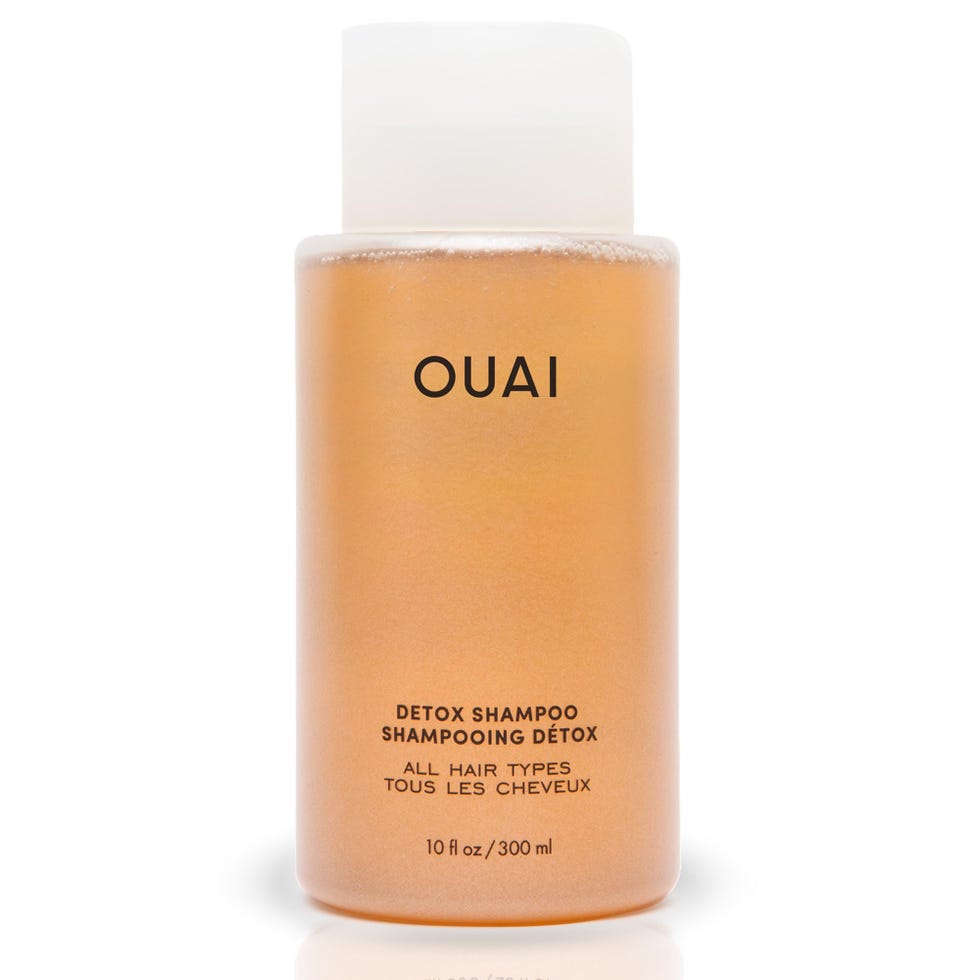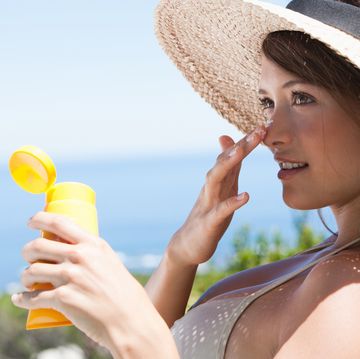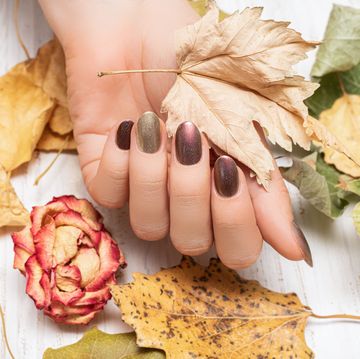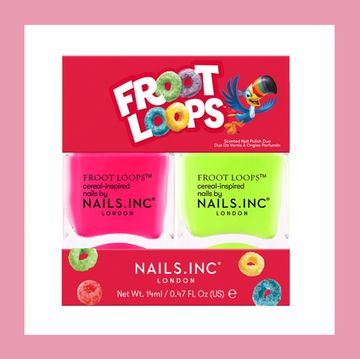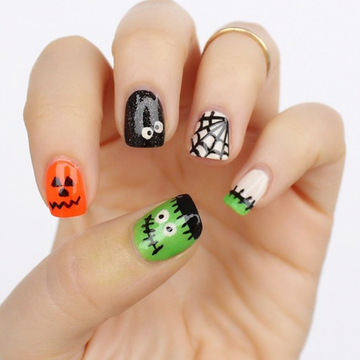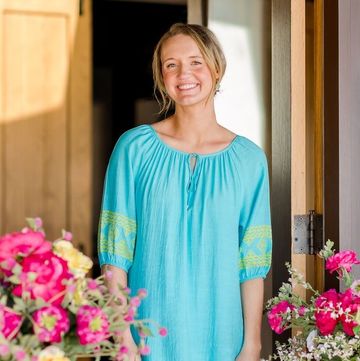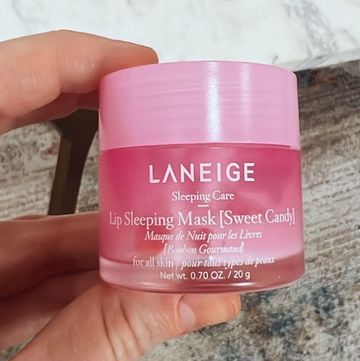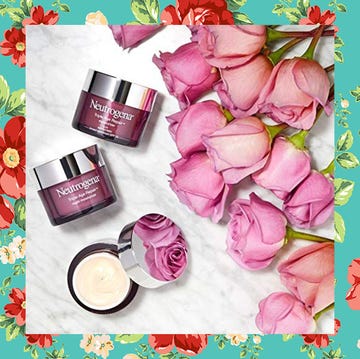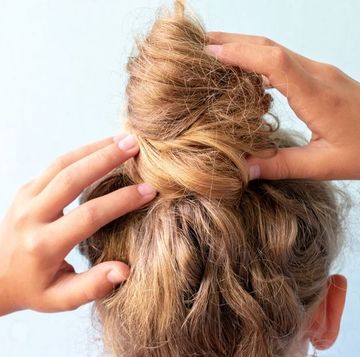Jump to:
It's basically a universal truth: Our hair is an extension of ourselves. That's proven by none other than The Pioneer Woman herself. Along with scrumptious recipes like her perfect pot roast and the best lasagna, she's also known f0r her beautiful red locks. And she knows as well as we do that when you're having a bad hair day (one in which no amount of cute hats or dry shampoo can make you feel better), well, it really does impact your whole mood. That's why it's so important to do what we can to make sure our hair always looks and feels its best.
You can do that by ensuring you have a proper haircare routine, starting with washing! So, we've consulted two haircare experts, Dr. Iris Rubin, Dermatologist and Founder of SEEN Skin & Hair Care and Anabel Kingsley, Consultant Trichologist & Brand President to help us unravel the science behind shampooing. Whether you have sleek and straight hair, thick and curly hair or anything in between, we've got information tailored to the specific needs of your hair type—because trust us, that matters.
We'll also look at the role of external factors on your tresses and debunk common myths and misconceptions about hair washing like whether daily shampooing is truly detrimental to your strands and if extended intervals between washes can be beneficial. Whether you've been rigorously washing every day or waiting it out, this definitive guide has info from those who know best so you can strike the perfect balance for healthier hair.
And remember to choose a shampoo that's right for you. There are so many options to fit your specific needs like shampoos for oily hair, shampoos for frizzy hair, shampoos for curly hair, shampoos for thinning hair, and even shampoos for color-treated hair. Pair your pick with one of the best leave-in conditioners and you're ready to rinse and repeat... according to when your hair needs its next wash. Read on to find out when that is!
How often should you wash your hair?
Hair we go! Too much? Okay, we'll quit with the puns while we're ahead... but regardless, here's what you need to know about washing your tresses. According to Dr. Rubin, "There is no rule of thumb for everyone, and how often you need to wash usually depends on hair type, how oily the scalp is, and lifestyle." For instance, fine and straight hair or fine and wavy combination hair will need to be washed more often. Kingsley recommends daily or every other day. This is because, "People with fine hair naturally have more sebaceous (oil) glands on their scalp, so fine hair gets oily faster than other hair textures. It also becomes weighed down easily," says Kingsley.
If your hair is more coarse or textured such as coiled curls, you'll probably want to hold off on constant washing. Rubin says, "Curls need moisture, so washing too frequently can be drying." Along with that, Kinsgley acknowledges that those with curly hair "May prefer how your hair looks and behaves a couple of days after shampooing. In these instances, for the health of your scalp, don’t leave more than three days between cleansing." Basically, when it comes to sudsing up, your strands and scalp will tell you when it's time—you just have to learn to listen!
What factors impact your hair washing schedule?
Along with your hair type, there are a few other factors that may affect how often you should reach for the shampoo bottle. Dr. Rubin advises, "Naturally drier, or chemically treated hair may need to be washed less often to minimize over-drying the hair. Those who exercise or sweat a lot may need to shampoo more often."
You might also want to consider your plans for the week and how you want your hair to look. Kingsley adds, "Style preferences. If you’re not fussed by styling, you choose to air dry or rough dry your strands, or you have fine hair that dries quickly, daily shampooing isn’t going to be a big deal. However, if styling is time consuming (i.e. you choose to straighten it/roll it/curl it), you may not want to wet your hair as often." Taking all of these things into account as well as your specific hair type and texture should help you come up with your own successful shampoo schedule.
Signs that you are washing your hair too frequently
There's nothing much better than that squeaky clean feeling once you've showered and shampooed—so if you want to wash your hair every day, it's totally understandable. But should you? Really, it just depends on how you do it. According to Kingsley, "You can’t really wash your hair too frequently— although I wouldn’t recommend more than once daily." She continues with, "However, you can be too rough when you shampoo which can damage your strands." Her advice is to gently focus on the scalp then squeeze suds through your hair instead of scrubbing. When done, gently towel-dry. If you want to use a blow dryer, be sure to use a low heat setting and prep your hair with heat protectant.
Additionally, if you stick with daily washes, be sure to use a gentle shampoo. Dr. Rubin tells us, "Using a shampoo that contains potentially harsh ingredients like sulfates can strip the hair and scalp of their natural oils. For some this can lead to hair that feels dry and lacks shine, as well as possibly an irritated and/or dry scalp."
Signs that you aren’t washing your hair enough
We've all been there: You wake up and see that your hair isn't looking its best. In fact, it's pretty greasy. That's a telltale sign that you haven't washed as needed, but there are several other indicators, too. According to Kingsley, your scalp will likely experience the following:
- Your roots will get greasy.
- You’ll see flakes.
- You will have some itching and irritation.
- Depending on how long it has been between cleansing, and your rate of oil production, you may get pimples.
- Your scalp can start to smell.
She adds, "In terms of your hair, it may start to look dull and limp." With that being said, you shouldn't go more than a week without washing your hair. Though you may be able to stretch out your wash-day, that could lead to irritation or breakage. After all, your locks as well as your scalp need moisture to stay healthy and look luscious.
Tips to maintain hair between washes
If you're trying to stick with a washing schedule that your scalp isn't quite used to yet or maybe life just gets in the way (trust us, we've been there)—there are a few ways to boost the appearance of your hair before your next shampoo. Insert: your tried and true dry shampoo. But keep in mind, "It’s ok to use dry shampoo periodically, but it’s not a substitute for washing your hair. Your hair and scalp need to be washed regularly for optimal scalp and hair health," says Dr. Rubin.
Kingsley tells us you can also use a balancing serum the evening before you shampoo as well as an exfoliating pre-wash scalp mask the day you shampoo. She adds, "When you do shampoo, double cleanse." And if you have an itchy scalp between washes, consider using a daily anti-microbial scalp toner.
It may take some scheduling trial and error (along with finding the perfect shampoo for you), but before you know it, you'll have a haircare routine that has you feeling like you've stepped out of the salon every time you shower!
Meet the Experts:
- Dr. Iris Rubin, Dermatologist and Founder of SEEN Skin & Hair Care
- Anabel Kingsley, Consultant Trichologist & Brand President
Macie Reynolds is the assistant editor of E-Commerce and SEO for The Pioneer Woman.







